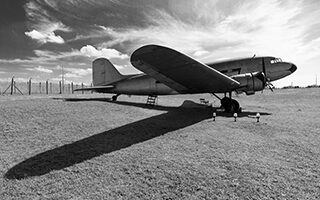
July 14 marks 79 years ago that Texas native and aviation pioneer Howard Hughes broke the world’s record for fastest flight around the globe. It took Hughes three days, 19 hours and 14 minutes. Hughes and his crew—flying a customized Lockheed 14—almost died three times.
“Would I like to make the flight again? Not on your life,” was what he told reporters not long after touchdown.
Scrapes with danger were common for Hughes. He had grit and more guts than you could hang on a fence. And he had just as much money as guts, which gave him the means to pursue his passions.
Hughes was born near Houston in 1905 as the son of a wealthy tool manufacturer. The Hughes Tool Company made tools for oil drilling in the days when business was just beginning to gush. When Hughes was still a teenager, he assumed control of the operation, made it even more successful and then used it to bankroll other interests.
In his mid-twenties, he started Hughes Productions, which earned the young millionaire several awards as a Hollywood filmmaker. One of his most famous movies was “Hell’s Angels,” an epic aviation war film that cost a record $3.8 million. It was one of the first sound movies. And it starred a previously unknown Jean Harlow—the original blond bombshell.
At 29, he created Hughes Aircraft Company, a division of Hughes Tool. As an aircraft enthusiast, pilot and a self-taught aircraft engineer, Hughes had unique insight into the industry. And planes like the innovative H-1, which he had a hand in designing, drew much praise. While planes like the infamous Spruce Goose, while record breaking in size, drew much criticism.
The 2004 film “The Aviator” dramatizes much of Hughes’ early life in Hollywood and as a daring pilot who crashed two planes and lived to talk about it. But it doesn’t cover much of Hughes’ life after his early years.
In the 1960s and 1970s, Hughes Aircraft Company was at the forefront of aerospace and defense technology. The company was huge, employing more than 100,000 engineers and scientists. And the work they did with such things as satellites and communications systems had a lasting effect. From today’s TV and cell phones to navigation, weather and space science, Hughes played a part in shaping the world of today. He died in 1976 while being flown to a hospital in Houston. He was 70.
Veteran Energy is pleased to remember the life of Howard Hughes, a true blue trailblazing Texan.


